LGBT

When I was eighteen years old I knew that I knew everything there was to know, especially in regards to the “us” and the “them” of the world. Eighteen-year-old me knew that being gay was a sin and that LGBTQ people were not called to leadership in the church (and my conservative Christian college did nothing but reinforce these beliefs). But four short years later I found myself on a hill across from my alma mater, standing in solidarity with dozens of LGBTQ young adults and allies, advocating for change in Christian universities with policies that discriminated against LGBTQ people.
How did I get from “there” to “here”? How did my view of “us” and “them” shift so radically?

I was at a retreat recently with a facilitator who is known for pushing the envelope a bit regarding Roman Catholic Church teaching. The question posited throughout the weekend: Whom should we accept as brothers and sisters in faith?
During the retreat someone asked the facilitator how we should approach ministry in our churches in regard to the gay and lesbian community. A fellow retreatant replied, “Invite us to speak for ourselves.”
Who better to speak on challenging topics than those who are living inside the issue?

“The frame of reference is now going to be: ‘What does the gospel really say here?’ That’s our first task.”
That’s Washington Cardinal Donald Wuerl summing up the new course for Catholicism set by the momentous Vatican meeting of 270 bishops from around the world that concluded last weekend, a three-week marathon in which he played a key role.
After often contentious talks on whether to adapt the church’s approach to issues such as divorce and cohabitation, the high-level synod succeeded in giving Pope Francis a document that offers him significant new flexibility in shaping more pastoral policies.
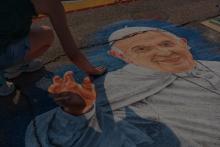
At the conclusion of the most recent synod, Pope Francis encouraged bishops assembled to continue their journey. During this ongoing journey, Pope Francis warned against “hostile inflexibility” and to allow one’s self to “be surprised by God.”
Will seeking an understanding into the differences between civil and sacramental marriage help to diffuse church tension? Can religious and civil liberties peacefully coexist?
The words and actions of Pope Francis certainly indicate a desire to explore such a path. The question then becomes: will others follow him on this journey?
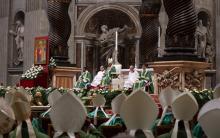
The overriding interest in the global meeting of Roman Catholic bishops that finishes here on Oct. 25 has centered on whether the churchmen will actually do anything in the end — as in vote to make changes in church doctrines or policies — or leave well enough alone.
In reality, the gathering of 270 bishops from around the world, called a synod, has no authority to legislate doctrinal or other changes, and wasn’t expected to try anything that bold anyway.
Its real purpose — thanks to reforms instituted by Pope Francis — is to discuss issues openly and frankly, and to advise the pontiff about what they think the church ought to do about the challenges facing families today, or, as is likely the case for this divided synod, to kick the hard questions upstairs for him to decide.
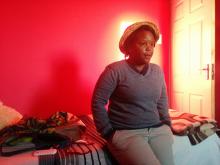
Sipping ginger beer at an outdoor restaurant in Gugulethu, one of South Africa’s murder hubs, Prince January said he feels safe.
Across the train tracks at their shared home in Manenberg, Hlubi George said she can finally sleep through the night.
January, who is gay, and George, who is lesbian, are both temporary residents at Inclusive and Affirming Ministries’ iThemba Lam LGBTI safe house on the outskirts of Cape Town. The two-bedroom center provides refuge and counseling for at-risk sexual minorities from across the continent and a safe space for residents to integrate “God’s gift of faith with God’s gift of sexuality.”
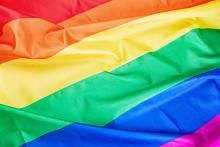
Just before the Religious Freedom Restoration Act controversy exploded in Indiana earlier this year, a compromise was playing out 1,500 miles away.
In Utah, as the Salt Lake Tribune noted, same-sex marriage had been banned both through state law and constitutional amendment. Attempts to pass lesbian, gay, bisexual, and transgender anti-discrimination measures had failed six times.
But in March, lawmakers brought together representatives from the Mormon and LGBT communities and passed landmark legislation.
Utah law now lists sexual orientation and gender identity as protected classes in housing and employment — but, without buy-in from the religious community, it does not include “public accommodations,” a broad legal term used to describe everything from bus services to restaurants and other private businesses.
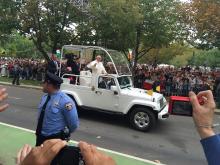
Pope Francis’ visit to the United States last week was a huge hit with the media and with the public. This week, Americans may have wondered whether he would provide ongoing unity and inspiration for our public discourse, or whether we would return to culture warring and ideological sniping.
Liberals inside and outside the Catholic Church noted that the pope made only brief allusions to abortion and same-sex marriage but spoke at length about immigration, climate change, and economic inequality.
Yet as progressives were ebullient, news broke Sept. 29 that Pope Francis met privately with Kim Davis, the Kentucky county clerk who refuses to sign marriage licenses for same-sex couples.
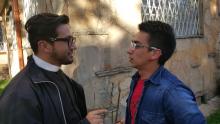
Not long ago, the thought of a transgender person speaking openly to a Roman Catholic priest in Colombia would have seemed unthinkable. Now cultural shifts are making way for LGBT acceptance, at least in some urban areas.
“We are liberal,” said Marcela Sánchez, director of Colombia Diversa, the nation’s most prominent LGBT rights organization. “Please don’t say Colombia isn’t liberal!”
Recent polls estimate that two-thirds of Colombians oppose same-sex marriage, but that is less opposition than in many Latin American countries, including neighboring Ecuador. Support for same-sex marriage is highest in Bogotá, the nation’s capital, where, in a 2010 poll conducted by local newspaper El Tiempo, 63 percent of residents endorsed the right of same-sex couples to marry in civil ceremonies.
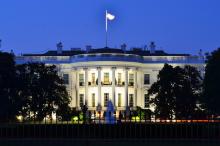
The White House has hired its first openly transgender staff member, the Washington Post reports.
The staffer, Raffi Freedman-Gurspan, will work as a recruitment director for presidential personnel. She is not the first transgender staff person to be hired by other agencies under this administration, but is the first to work in the White House. She is also a transgender woman of color, which LGBT groups noted as significant a news release.

As an undergraduate student at a Christian university, I realize that my degree of experience within American social trends is limited to the last two decades. However, my age does not disqualify my faith as a Christian, nor should my faith as a Christian disqualify my faculty of reasoning.
I cannot speak as one who knows the mind of God, but as a Christian I have been called to have the mind of Christ. And through careful inspection of the texts left for us, it is possible to discern what a Christ-like mind is — what a Christian mind is supposed to be.
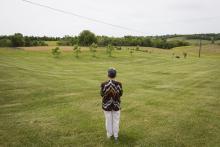
Sister Monica lives alone in a small house at the edge of a Roman Catholic college run by a community of nuns.
She doesn’t want to reveal the name of the town where she lives, the name of her Catholic order, or her real name.
Sister Monica lives in hiding, so that others may live in plain sight.
Now in her early 70s and semiretired because of health problems, she remains committed to her singular calling for the past 16 years: ministering to transgender people and helping them come out of the shadows.

Canfield and Kelly have decided to keep singing each Sunday at Hillsong, despite the restrictions. They recognize that the decision they’ve made is not one that every person in their position should make. But they believe it is the right one for them.
“If every gay person leaves their church because they have been treated poorly, nothing will change,” Canfield said.
“They still want us, and we feel called to stay. And we’re telling all our gay friends at Hillsong to do the same.”

I have to force myself to go to church.
Saturday mornings, when Seventh-day Adventists like me observe Sabbath, I lie in bed extra-long. Sometimes, I roll over and shut my eyes. Other times, I have to physically force myself to get up and prepare, both mentally and physically, to go.
It didn’t use to be this way. I remember waking up extra early as a preteen when I was excited to go to church. More than likely, I would be singing at both services, either in a choir or in special music. I would stay long hours after the service for evening vespers.
That all changed when I came out as bisexual. I no longer felt welcome at worship.
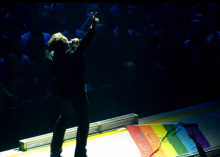
On Sunday, June 28, the day of gay pride parades in Chicago and around the world, millions celebrated the recent United States’ Supreme Court decision that effectively legalized gay marriage at the national level. But David Wichman took his personal Pride rally to the General Admission (GA) line at the United Center.
With his hand-decorated rainbow flag in tow, he wanted to get a place close to the stage. His flag simply said: “IN THE NAME OF LOVE – THANK YOU!” Wichman wanted Bono and the band to know their work as allies had not gone unnoticed.
Dozens of fans bring their banners and signs to the GA floor on each night of the tour — but not every fan has their banner or sign lifted high by the lead singer onstage. As Bono had done in Arizona in May after the news of Ireland’s successful marriage referendum, he turned this spirited Sunday night show into a celebration of marriage (his wife Ali was in attendance), and a joyful tribute to the civil rights advocates who worked to make marriage equality a reality for the whole United States.

Years before the gay rights movement gained momentum, an openly gay black activist named Bayard Rustin advised Martin Luther King Jr. on nonviolent protest tactics and organized the 1963 March on Washington. But attacks on Rustin’s sexual orientation threatened his role in the civil rights movement.
Rustin died in 1987 at age 75 after decades as an activist and organizer on issues including peace, racial equality, labor rights, and gay rights. He will be remembered for support for LGBT rights during the National LGBT 50th Anniversary Celebration July 2-5 in Philadelphia. The four-day event recalls gay rights activists who demonstrated for equal rights at Independence Hall on the Fourth of July from 1965 to 1969.

In the days before the Supreme Court made it possible for gay couples to marry everywhere in the U.S., we asked two couples of faith — one Jewish who live in a state that forbids gay marriage, and one Christian and opposed to gay marriage — what the decision would mean to them.
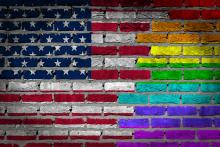
The Constitution was born within a worldview hospitable to transformation and open to corrections of injustices in letter and spirit. Examples abound: women’s right to vote, interracial marriage, the right to open legislative deliberations with prayer, and the right to education without segregation.
The Constitution has never claimed to be, in itself, the last word. Rather, it has claimed to be the first.
While I will not propose that every decision the Supreme Court has made has been for the betterment of all people, today’s ruling on same-sex marriage is an example of a nation reforming itself for the better.
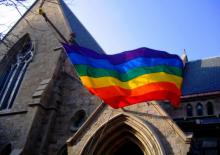
Following the Supreme Court’s ruling today that “same-sex couples may exercise the fundamental right to marry in all States,” many wondered how Christian leaders in the U.S. would react.
But despite lingering stereotypes, many religious folk in the U.S. are now supportive of same-sex marriage. In fact, a recent survey found that “among religiously affiliated Americans, supporters today actually outnumber opponents.”
Below, read some of the responses from Christian leaders — including evangelicals, Catholics, and Protestants — who have expressed their joy and support for today’s Supreme Court ruling, as well as the work left to be done towards full LGBTQ inclusion in our nation and churches.
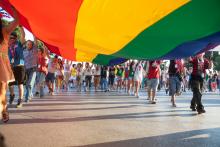
The debate is over.
In a landmark decision, the Supreme Court decided this morning that marriage was a fundamental right for all couples regardless of gender. All Americans who wish to can now marry the same-sex partner they love. Every state law that bans such marriages is now dead. And it is over. It is finished. This debate, at long last, is done.
This is a good day to be present. I want to document this day into my memory, so I might tell my children about it later. Although at 25 I can’t possibly understand all this decision entails, there may be a day down the road when I stand tuxedoed and teary-eyed and holding the hands of another, and I want this memory to color that moment. I want to feel the gift of it.
But this day also brings up a lot of complicated feelings for me, too. I am, after all, a follower of Jesus, and many in this family of Christians are not celebrating with me. They are unsure of what to say, uncertain of what the future holds.